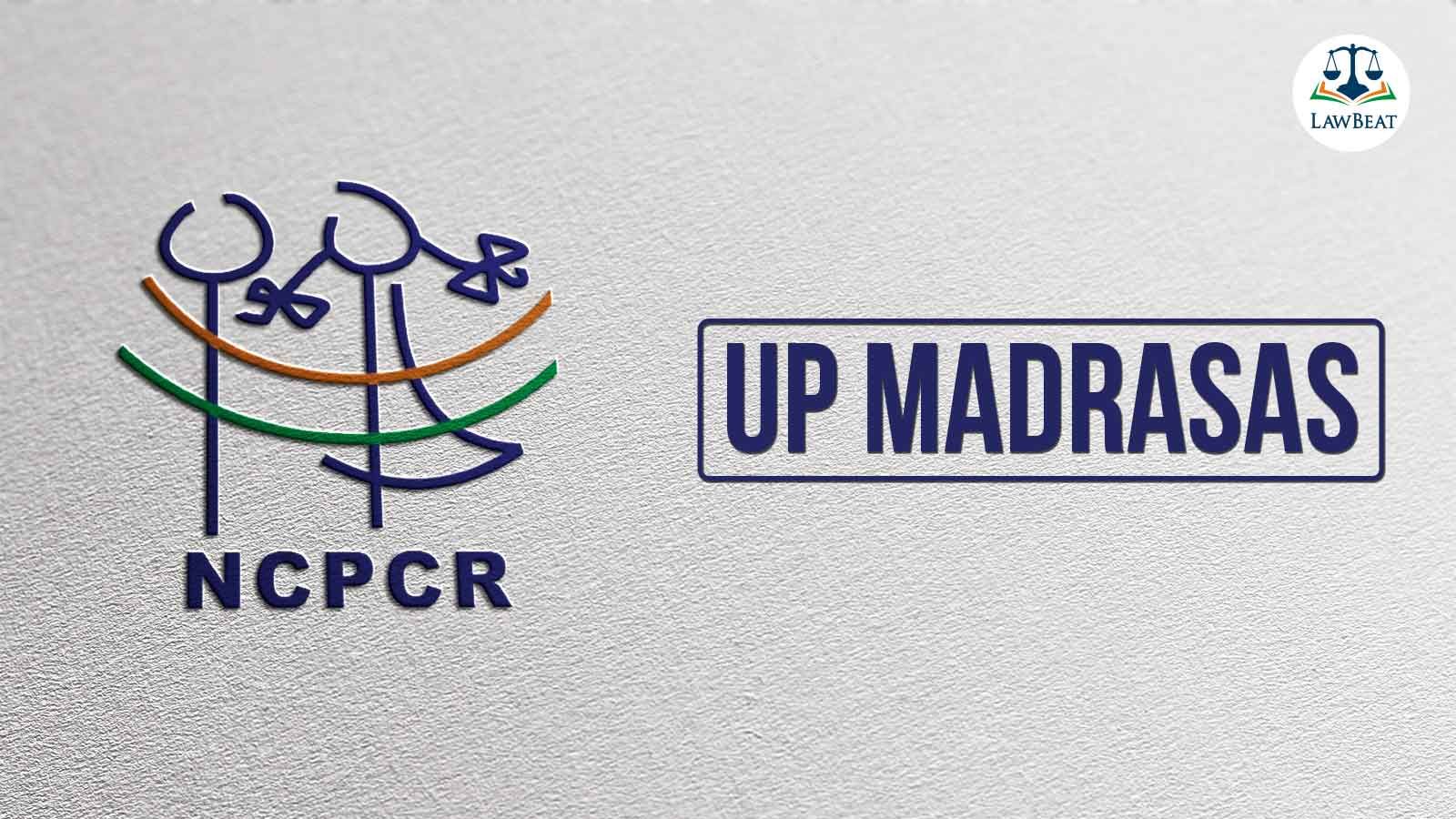"Education being imparted in Madrasas not adequate; against RTE Act": NCPCR files intervention application before Allahabad High Court

The NCPCR has sought intervention in the matter stating that it is a statutory body to protect child rights and other related matters in the country, therefore, it wishes to assist the court in the present matter.
The National Commission for Protection of Child Rights (NCPCR) has filed an intervention application before the Allahabad High Court in a matter pertaining to the issue of religious education being imparted on the government's expense.
In the month of March, the high court had directed the Central as well as the State governments to file their respective replies to explain as to how on the funding provided by the Government Exchequer, religious education be imparted and whether this could be in violation of Articles 14, 25, 26, 29, and 30 of the Constitution of India.
In the intervention application filed through Advocates Swarupama Chaturvedi, Saumya Kapoor and Rakshit Raj Singh in the matter of Azaj Ahmad v. State of UP, the commission states that the matter before the court requires keen consideration and therefore, it seeks to assist the court.
As per the application, "Education imparted to children in Madrasas is not adequate/ comprehensive and as such the same is against the provisions of Right to Education Act, 2009 (RTE Act)".
"Such institutes are also providing Islamic religious education to non-Muslims which is further in violation of Article 28 (3) of the Constitution of India," states the application.
NCPCR further claims that since the RTE Act is not applicable to minority institutions, the children in madrasas are deprived of the facilities, benefits, and entitlements which are provided to students studying in regular schools.
Moreover, NCPCR states that a school, as defined under the RTE Act, is any recognized school imparting elementary education and the State cannot facilitate such activity beyond the RTE Act which will be in violation of Article 21A of the Constitution.
"Madrasas being out of this definition have no right to compel children or their families to receive Madrasa education. A Madrasa is not only an unsuitable/unfit place to receive 'fundamental' education but also they are run in absence of benefits to the children as provided under Sections 19, 21, 22, 23, 24, 25, and 29 of the RTE Act, 2009," NCPCR argues.
Further, the application states that Madrasas not only render an unsatisfactory model for education but also have an arbitrary mode of working in the absence of a curriculum and evaluation procedure as laid down under Section 29 of the RTE Act, 2009.
Moreover, as per NCPCR, many complaints have been received by the commission which alleged that Madrasas work in an arbitrary manner and are being run in overall violation of the Constitutional mandate, the Right to Education Act, and the Juvenile Justice Act, 2015.
"On perusal of various complaints received by the NCPCR from different sources, it is noted that children belonging to non-Muslim communities are attending Government funded/Recognized Madrasas and are receiving religious education and instructions," NCPCR states.
As per the application, NCPCR has also received complaints alleging that the Madrasas Education Council is pressuring parents of Madrasas employees to compel their children to attend Madrasas education. "It is pertinent to highlight that this is a flagrant violation and contravention of Article 28(3) of the Constitution of India which prohibits educational institutions from obligating children to take part in any religious instruction without the consent of parents," the application reads.
"It cannot be overlooked that a child getting education in such an institution will be devoid of basic knowledge of school curriculum which is provided in a school," NCPCR states.
NCPCR also raises concern over Madrasas functional in India under Darul Uloom Deoband. "They permit corporal punishment to the children studying in Madrasas in India also, whereas inflicting of corporal punishment to children in schools is strictly prohibited under the RTE Act, 2009," NCPCR argues.
The high court had sought the governments' replies in the filed by one Azaj Ahamad, a teacher in a Madarsa located in Samdaniya Islamia, Shudnipur, District-Jaunpur pertaining to his salary dispute.
Dealing with the issue at hand, court had noted that the concerned Madarsa, besides the normal curriculum, was also imparting religious education.
Case Title: Azaj Ahmad v. State of UP
